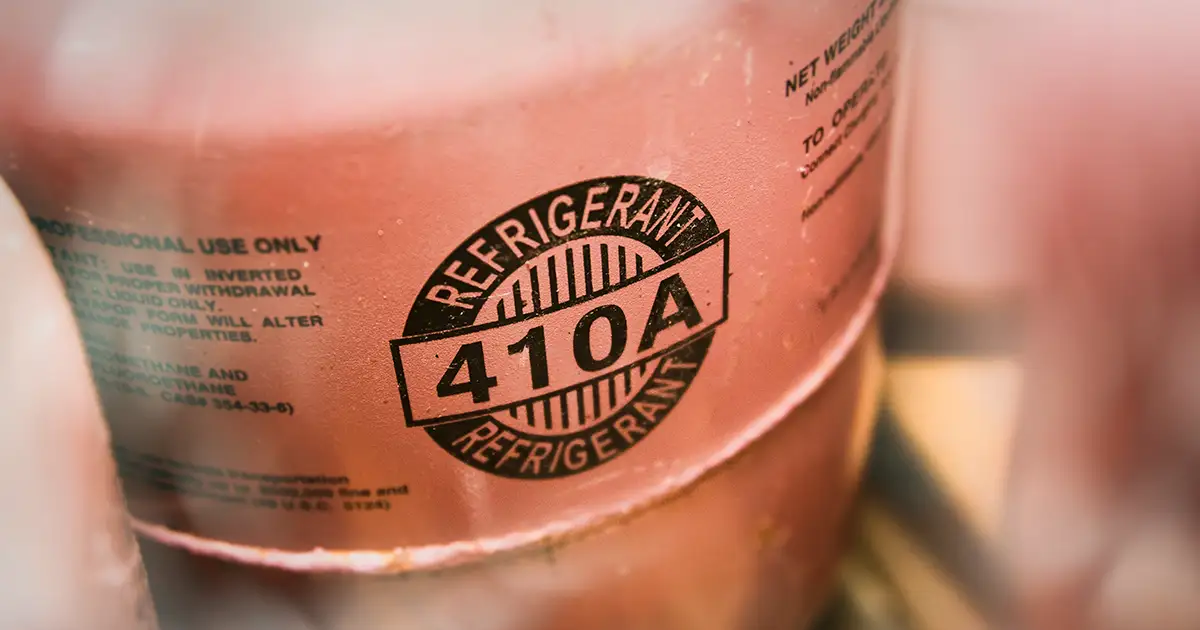As the summer heat in central Oklahoma continues to intensify, we find ourselves relying heavily on our air conditioning systems to keep our homes cool and comfortable. One question we often hear at GNH Heating & Cooling is, “Does my AC need a refrigerant refill?”
Many homeowners ponder this important question, especially when their air conditioner starts acting up. Let’s explore the details and clear up any confusion.
What is Refrigerant?
Refrigerant, commonly known as coolant, is a crucial component in your air conditioning system. This fluid circulates through the system, absorbing heat from inside your home and expelling it outside. This process keeps your indoor environment pleasant and cool.
Refrigerant is indispensable for your AC to function effectively, and correct refrigerant levels must be maintained for the optimal performance of your AC unit. Too little refrigerant can lead to various issues, from reduced cooling efficiency to potential damage to your system.
Are All Refrigerants The Same?
The type of refrigerant your AC unit uses depends on several factors, including its make, model, and age. If your air conditioner was manufactured before 2010, it likely uses HCFC-22, commonly known as R-22. However, due to environmental concerns, the Environmental Protection Agency (EPA) has phased out the production and installation of new R-22 appliances. As a result, many newer models use R-410A, an eco-friendly alternative known by names like Forane® and Puron®.
If you need help determining which type of refrigerant your AC uses, a glance at the nameplate on your outdoor condenser unit can provide the answer. Of course, the GNH Heating & Cooling team is always available to help you determine your refrigerant type and offer professional advice.
Is It Safe To Refill Your Own Refrigerant?

We understand the appeal of DIY projects – they can be empowering and often save money. However, this is one job that is best left to the professionals.
Handling refrigerants can be hazardous due to their toxic, flammable, and potentially asphyxiating properties. Mishandling refrigerants can result in severe health risks, including blindness and respiratory issues.
Moreover, there are strict laws governing the use of refrigerants. It’s illegal to handle them without proper certification, and for good reason. Licensed professionals, like the team here at GNH Heating & Cooling, are trained and equipped to safely and legally manage refrigerants.
We can detect and repair leaks, dispose of old refrigerant, and ensure your system is filled with the correct amount – all while keeping you safe.
What Are The Signs of a Leak?
Your AC’s refrigerant operates in a closed loop, meaning the levels should remain consistent. If your refrigerant levels are low, it’s usually a sign of a leak. Here are some common indicators that you might be dealing with a refrigerant leak:
- Warm or Hot Air: If your air conditioner is blowing warm or hot air instead of cool air, it could be due to low refrigerant levels.
- Extended Cooling Times: If your home takes longer than usual to cool down, it might indicate that your AC is struggling due to insufficient refrigerant.
- Ice Build-Up on the Evaporator Coil: Ice forming on your AC’s evaporator coil clearly indicates a refrigerant issue.
- Spikes in Electricity Bills: Unusually high electricity bills can indicate that your AC is working harder than necessary due to low refrigerant levels.
- Hissing or Bubbling Sounds: If you hear hissing or bubbling noises near the refrigerant lines, it strongly indicates a leak.
You Have A Leak… What Should You Do?
If you suspect a refrigerant leak in your AC system, it’s crucial to act promptly. Here’s a step-by-step guide on what to do:
- Turn Off Your AC: To prevent further damage, switch your thermostat from ‘COOL’ to ‘OFF’.
- Defrost Frozen Parts: Set your thermostat fan to ‘ON’ for a few hours to defrost any frozen components.
- Contact a Professional: Reach out to GNH Heating & Cooling. Our experienced technicians will diagnose the issue, locate the leak, and determine the best course of action to fix it.
Final Thoughts
Air conditioners rely on precise refrigerant levels to function properly. Mixing different types of refrigerants or adding the wrong ones can cause significant damage to your system and pose serious safety risks. That’s why it’s essential to trust licensed professionals for any refrigerant-related tasks.
At GNH Heating & Cooling, we are trained and certified in handling refrigerants safely. We have the tools and expertise to detect and repair leaks, ensuring your AC operates efficiently and safely.
If you’re experiencing issues with your air conditioner, don’t hesitate to give us a call at (918) 804-1549. We’ll help restore the refreshing, cool air in your home during these hot summer months.


